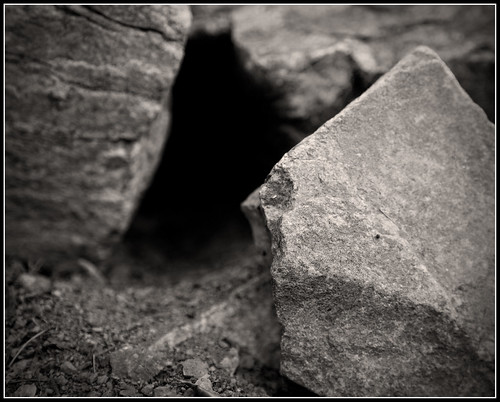Easter
Sunday Sunrise, 3-27-16
St. Paul Memorial Garden
Luke 24:1-12
Grace to you and peace from God
our father and from our crucified and risen Lord Jesus Christ, Amen.
 |
| Taken by Mike Schmidt |
What are you expecting this
morning, on Easter morning, 2016?
What were you expecting, as you
got up early to come to our memorial garden on this slightly chilly morning –
though could be worse – to stand in your coats for half an hour to sing some
songs, hear some scripture, and perhaps pray, like me, that your coffee would
hurry up and kick in any time now?
What are you expecting, here,
this particular morning, on Easter, 2016?
Where you expecting that, after
wandering around in the wilderness of Lent, you would come out on the other
side, to rise this Easter morning completely refreshed, restored, and renewed? I
don’t know about you, but I was. Or at least, I was kind of hoping that’s how
it would work. But life doesn’t exactly work out in the way we expect it to,
does it?
But then again, I’ve done a lot
of expecting over the years, as I’m sure many of you have. And for me, reality has more often than not fallen
far short of those expectations. And, like many of you, I woke up in the
darkness of this morning to the very real, very present realities of
pain, brokenness, and suffering in our world and in our lives. Our lives are
still in the same mess that they were in yesterday. We still find ourselves
buried in dark tombs.
And yet…. here we are,
on Easter morning, rubbing our hands together to keep them warm in a garden
where many of our loved ones have been laid to rest. I’m here. You’re here.
Life is poking up out of the ground all around us here. And Easter morning
has arrived here, and it DOES change things - just not in
the ways we expect.
Really, this whole week tells
the story of the unexpected: How Jesus was welcomed into town with a parade at
the beginning of the week, and being nailed to cross by the end of it.
How Jesus shared his last meal
with his disciples, the very ones who would betray him, deny him, and stand
silently by as Jesus was arrested, tried, mocked, and beaten before being
nailed to a cross.
How a Roman soldier praises God
and confesses that Jesus was an innocent man, while his own disciples are
silent.
How Jesus, King of the
universe, was hastily laid in a borrowed tomb, a place ruled by death, much
like we are in right now, on this early morning.
The women also came to a place
of death very early in the morning, where someone THEY dearly loved had been
buried. They expected the worst, of course. They expected to be alone with
their grief. They expected to find the body of their beloved Jesus, so that
they could care for him one last time by anointing his body with spices, as was
their custom. They expected to find death in a place OF death, as
we all would.
But instead, the women found
the stone sealing his tomb had been rolled away. Instead, the women found
a grave with no body. Instead, the women found two men wearing clothes
that flashed like lightning, with a question for them: “Why do you look
for the living among the dead?” What the women found was the stunning
revelation that Jesus was not there.
He has risen.
And then the women remembered.
They remembered what Jesus had been saying all along. They remembered that he
must be betrayed, abandoned, and handed over to be crucified. And three days
later he would rise again.
And then the women proclaimed.
They returned to the remaining eleven disciples and all the rest of Jesus’s
followers and told them the amazing and unexpected sight they had just witnessed.
These women expected to find death, but instead became the first
witnesses to the fact that Jesus was raised from the dead.
On Thursday we remembered the
night in which Jesus was betrayed, and Jesus’ command to us to eat of his body
and drink of his blood, in remembrance of him. And Paul reminded us that
as often as we do this, we proclaim the Lord’s death until he
comes. And these women did just that, on that first Easter morning. These women
remembered, and then they proclaimed, becoming the very first
preachers of the Gospel to their fellow disciples.
They were the first to share
the GOOD WORD, that death no longer has the LAST WORD. Death has been swallowed
up in victory, Christ’s victory, the victory of life over death, in all
its many forms, calling us out from inside of all of the dark tombs we
may find ourselves in.
 In a place where we expected to
find more death, we instead find that Jesus is gone, that death
has been buried forever. We who have been buried in the darkness of tombs have also
been buried with Jesus in our baptisms, as Paul wrote. And that means that we
will be united with Jesus in his resurrection. And it begins now, this
very morning. New life sprouts up out of the empty shell of death, right now.
As one Easter hymn reminds and proclaims,
In a place where we expected to
find more death, we instead find that Jesus is gone, that death
has been buried forever. We who have been buried in the darkness of tombs have also
been buried with Jesus in our baptisms, as Paul wrote. And that means that we
will be united with Jesus in his resurrection. And it begins now, this
very morning. New life sprouts up out of the empty shell of death, right now.
As one Easter hymn reminds and proclaims,
“NOW,
the green blade rises from the buried grain,
Wheat that in dark earth many days
has lain;
Love lives again, that with the dead has been.
Love is come again
like wheat arising green.” (ELW 379)
In this very place where we
have buried our loved ones and laid them to rest, we heard Paul ask, “Death, where
is your sting?” And we know the answer. -
NOT. HERE!
And along with the women that
first Easter morning, in this place of death, we wonder, “Where is
Jesus?” - NOT. HERE!!
Why do we look for the
living among the dead? We expect to find death in a place of death, but Jesus
has done the unexpected. He has risen from the dead. He IS NOT HERE.
He
WAS here, but he is not here any longer. Instead, Jesus has vacated the tomb and
allowed some women to be his spokespeople. He has gone on ahead of us, to meet up
us out there on the dusty roads we travel. And he has won the victory
for us, so that we who have been buried in our own tombs with Jesus may be
raised in his glorious resurrection, now and in the life to come.
What were you expecting this
morning, here in the garden, on Easter 2016?
Whatever your expectations where,
Jesus always exceeds them.
Christ is risen.
He is risen indeed, Alleluia.
Amen.




